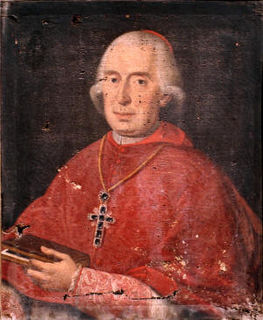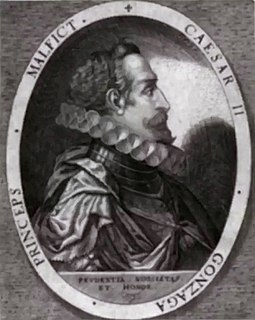
Guibert or Wibert of Ravenna was an Italian prelate, archbishop of Ravenna, who was elected pope in 1080 in opposition to Pope Gregory VII and took the name Clement III. Gregory was the leader of the movement in the church which opposed the traditional claim of European monarchs to control ecclesiastical appointments, and this was opposed by supporters of monarchical rights led by the Holy Roman Emperor. This led to the conflict known as the Investiture Controversy. Gregory was felt by many to have gone too far when he excommunicated the Holy Roman Emperor Henry IV and supported a rival claimant as emperor, and in 1080 the pro-imperial Synod of Brixen pronounced that Gregory was deposed and replaced as pope by Guibert.
Carl Erdmann was a German historian who specialized in medieval political and intellectual history. He is noted in particular for his study of the origins of the idea of crusading in medieval Latin Christendom, as well as his work on letter collections and correspondence among secular and ecclesiastical elites in the eleventh century. He is often mentioned alongside Percy Ernst Schramm and Ernst H. Kantorowicz as one of the most influential and important German scholars of medieval political culture in the twentieth century. His promising and remarkably prolific career was cut short by his death in the German army at the end of World War II. His grandson Martin Erdmann is a professor for experimental particle physics at the RWTH Aachen University.

Giuseppe Garampi was an Italian scholar and collector of documents and books.
Roman Historical Institutes are collegiate bodies established at Rome, for the purpose of historical research, mostly in the Vatican archives. These have been set both by ecclesiastical authority, and by national governments.

Ferrante II Gonzaga was Count of Guastalla and, from 1621, Duke of Guastalla.

Cesare II Gonzaga was Duke of Guastalla.

Gregory of Catino was a monk of the Abbey of Farfa and "one of the most accomplished monastic historians of his age." Gregory died shortly after 1130, possibly in 1133.
The Apostolic Nunciature to Bavaria was an ecclesiastical office of the Roman Catholic Church in Bavaria. It was a diplomatic post of the Holy See, whose representative was called the Apostolic Nuncio to Bavaria, a state – consecutively during the nunciature's existence – of the Holy Roman Empire, of its own sovereignty, and then of Imperial, Weimar and finally Nazi Germany. The office of the nunciature was located in Munich from 1785 to 1936. Prior to this, there was one nunciature in the Holy Roman Empire, which was the nunciature in Cologne, accredited to the Archbishop-Electorates of Cologne, Mainz and Trier.

Günter Weitling is a Lutheran theologian, historian, and author.

Michael Matheus is a German historian.

The Teutonic Order Research Centre, is a research institution at the Julius-Maximilian University of Würzburg. It is dedicated to the history of the Teutonic Order, with a particular focus on the regional history of Franconia.

Hermine "Erminia" Speier was a German archaeologist. One of the few female archaeologists of her time, she was the first female employee of the Vatican Museums and one of the first professional women to be employed by the Vatican. She was a pioneering contributor to the collections of archaeological photographs and is often credited as being the first archaeological photo-archivist.

The German Historical Institute Paris (GHIP) or Institut historique allemand (IHA) is an international research institute situated in Paris, France.

Wilderich von Walderdorff from the Walderdorff family was Prince-Bishop of Vienna and Reichsvizekanzler (Vice-Chancellor) of the Holy Roman Empire (1660-1669).
Péter Tusor is an associate professor of history at Pázmány Péter Catholic University, Hungary, where he specializes in church history. He is a doctor of the Hungarian Academy of Sciences (D.Sc.).
Ulrich Pfisterer is a German art historian whose scholarship focuses on the art of Renaissance Italy. He is currently a professor of art history at Ludwig Maximilian University of Munich and the director of the Zentralinstitut für Kunstgeschichte.

Ludwig Schmugge is a German historian.
Peter Baumgart is a German historian.
Antonio Masini was born in Florence. During the last years of his life in Rome he was the Kapellmeister of the Cappela Giulia in Rome and furthermore the chamber musician of the former Queen of Sweden Kristina during her stay in Rome.











